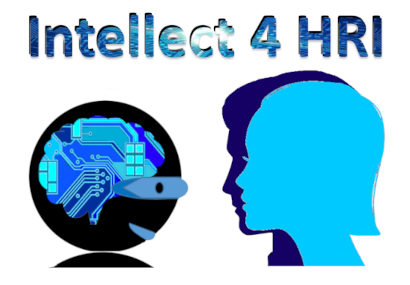Main menu
HELP
|
Notice after Workshop 1. We have included the videos of the workshop in the website. 2. We have included more information about the special issue that we are preparing in the International Journal of Social Robotics (IJSR or SORO). It will be open in 01 May 2023. Workshop Format Full-day workshop. The workshop will run in a hybrid format and we will accept both in-person and online attendants and presenters. Abstract Nowadays, with the advance of artificial intelligence (AI) and robotics, there is a growing move to use AI-enabled robots for human-robot interaction to do wide range of diverse tasks combining the best abilities of humans and robots to achieve success. The problem is that social interaction is complex as it depends not only on physics but also on a multitude of psychological, sociological, and other factors. This makes reasoning and learning about it incredibly challenging. Therefore, nowadays most HRI researchers focus on how to design interactions in specific situations, but if we envision service robots that will be able to collaborate efficiently with humans, these robots need to learn how to interact in general with humans in a socially suitable manner. Furthermore, this workshop is co-organized by researcher from the Artificial Intelligence for Human-Robot Interaction (AI4HRI) trilateral project lead lead from LAAS, CNRS, France by Aurélie Clodic and Rachid Alami (https://www.laas.fr); HRI Lab., Kyoto University, Japan by Takayuki Kanda (https://www.robot.soc.i.kyoto-u.ac.jp/en/); and IAI, Bremen University, Germany by Michael Beetz (https://ai.uni-bremen.de/). The goal of the AI4HRI project is to combine joint action planning and execution, social interaction learning, and knowledge reasoning and representation into a unified architecture for human-robot interaction. In this way, more intelligent robot’s behaviors for human-robot collaboration to accomplish joint goals can be achieved. Objectives The main objective of the workshop is to bring together a community of researchers interested in making human-robot social interaction more competent with the help of artificial intelligence. We hope to form new collaborations in the future to improve the research in this field by combining the best of our abilities, as we have in the AI4HRI project.
Then, if you are interested in set-up future projects and some of the organizers or speakers field of research fits in the complementary skills that you need, please! Contact us. In the web, you have all the pages and google-scholar links that include the emails to contact with us. In addition, you can talk with us directly during the workshop.
Topics of interest: The general topic of the workshop is Artificial Intelligence for Social Robots Interacting with Humans in the Real World, and the workshop sub-topics include, but are not limited to:
Acknowledgements The workshop is supported by the trilateral French-German-Japanese project AI4HRI (Artificial Intelligence for Human-Robot Interaction - ANR ANR-20-IADJ-0006 https://anr.fr/Projet-ANR-20-IADJ-0006). Project website: https://www.laas.fr/projects/ai4hri/
This workshop is endorsed by the IEEE RAS Technical Committee for Cognitive Robotics. https://www.ieee-ras.org/cognitive-robotics
This workshop will take place during the IROS 2022 conference. https://iros2022.org/ |



